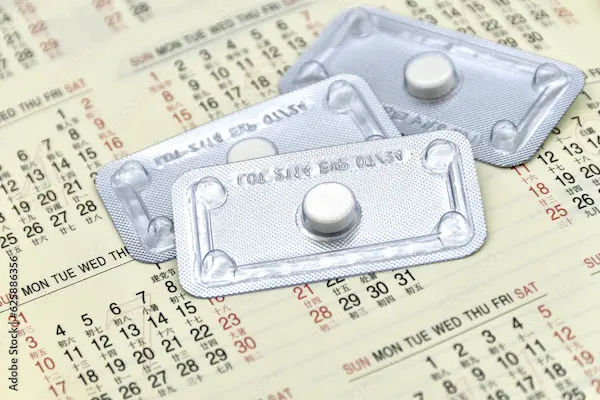Essential Tips For Reproductive Health
Discover essential tips for maintaining reproductive health. Learn about hygiene, nutrition, preventive care, and lifestyle choices for overall wellness.

Written by Dr. J T Hema Pratima
Reviewed by Dr. Rohinipriyanka Pondugula MBBS
Last updated on 13th Jan, 2026

Introduction
Reproductive health is a vital part of your overall well-being, yet it's often shrouded in silence or confusion. It's not just about avoiding disease or planning a family; it's about understanding and caring for your body throughout every stage of life. Good reproductive health empowers you to make informed choices, build healthy relationships, and live with confidence. This comprehensive guide demystifies reproductive health for everyone, breaking down the systems, the science, and the practical steps you can take to nurture your wellness. We'll explore essential tips for maintaining reproductive health, from nutrition and exercise to the importance of regular screenings and open communication. Whether you're looking to understand your body better, plan for the future, or simply ensure you're as healthy as possible, this article provides the roadmap you need to take control of this crucial aspect of your life.
What Exactly is Reproductive Health?
The World Health Organization (WHO) defines reproductive health as a state of complete physical, mental, and social well-being in all matters relating to the reproductive system. This means it's about far more than just sexual intercourse or STIs. It encompasses the right to have a satisfying and safe sex life, the capability to reproduce, and the freedom to decide if, when, and how often to do so. It includes accurate information access, safe and effective contraception, skilled care during pregnancy and childbirth, and prevention and treatment of sexually transmitted infections. Essentially, it’s about having the resources and knowledge to make responsible, healthy choices for your body and your life. Understanding this broad scope is the first step toward taking a proactive and holistic approach to your reproductive health.
Consult a Gynaecologist for the best advice
The Female Reproductive System: A Lifelong Health Journey
A woman's reproductive health needs evolve significantly from adolescence through menopause. Recognising these stages helps in providing targeted care.
Adolescence and Young Adulthood: Building a Strong Foundation
This stage is about education and establishing healthy habits. It includes understanding the menstrual cycle, recognising what’s normal versus what might be a problem (like severe period pain or irregular cycles), and learning about HPV vaccination and Pap smears. This is the time to build a trusting relationship with a healthcare provider and understand the importance of regular gynaecological health check-ups.
Reproductive Years: Fertility, Pregnancy, and Prevention
For many, these years involve decisions about contraception, pregnancy planning, and prenatal care. Understanding fertility awareness and ovulation cycles is key, whether trying to conceive or avoid pregnancy. This stage also emphasizes the continued importance of STI prevention and screening, especially with new or multiple partners.
Perimenopause and Menopause: Navigating Change
As ovarian function declines, women experience perimenopause and menopause. This brings changes like irregular periods, hot flashes, and vaginal dryness. Managing these symptoms through lifestyle adjustments, hormone therapy (if appropriate), and ongoing healthcare is a critical part of reproductive health during this transition.
The Male Reproductive System: Essential Health Often Overlooked
Men's reproductive health is equally important but frequently receives less attention. Key concerns include sperm health, testosterone levels, and prostate function.
Common Male Reproductive Health Concerns
Erectile Dysfunction (ED): Often a sign of underlying vascular health issues.
Low Testosterone: Can affect mood, energy, muscle mass, and libido.
Prostate Health: Includes prostatitis (inflammation), benign prostatic hyperplasia (BPH - enlarged prostate), and prostate cancer.
Testicular Health: Includes cancer, which is most common in young and middle-aged men.
Regular check-ups with a urologist or primary care physician are crucial for early detection and management of these issues, forming the cornerstone of male reproductive wellness.
Top 10 Actionable Tips for Optimal Reproductive Wellness
Take charge of your reproductive health with simple steps:
1. Prioritise Regular Check-ups and Screenings
This is non-negotiable. For women, this means annual well-woman exams, Pap smears, and breast exams as recommended. For men, it involves discussing reproductive health concerns during physicals and considering prostate exams and testicular checks. These visits are for prevention, not just treatment. If you're unsure where to start, you can consult a doctor online with Apollo24|7 to discuss which screenings are right for your age and risk factors.
2. Practice Safe Sex Consistently
Correct and consistent use of condoms is the only method that protects against both STIs and unintended pregnancy. Get tested regularly, especially with new partners, and have open conversations about sexual history.
3. Understand and Track Your Fertility Signals
Whether avoiding or achieving pregnancy, understanding your cycle is powerful. For women, tracking periods, cervical mucus, and basal body temperature can reveal patterns. Men can support fertility through lifestyle choices that improve sperm health.
4. Nourish Your Body with a Balanced Diet
Food directly impacts hormone production. Focus on:
Antioxidants: Found in berries, nuts, and leafy greens, they protect sperm and egg cells.
Healthy Fats: Omega-3s (in fish, flaxseeds) are crucial for hormone production.
Zinc and Selenium: Essential for sperm production and testosterone metabolism (found in shellfish, legumes, Brazil nuts).
Whole Grains & Fibre: Help regulate blood sugar and estrogen levels.
5. Move Your Body: The Role of Exercise
Regular, moderate exercise helps maintain a healthy weight, reduces stress, and balances hormones. However, extreme exercise can sometimes disrupt menstrual cycles or lower sperm count. Find a sustainable, enjoyable routine.
6. Manage Stress for Hormonal Balance
Chronic stress elevates cortisol, which can disrupt the delicate balance of sex hormones (estrogen, progesterone, testosterone), leading to irregular cycles, low libido, and fertility issues. Incorporate stress-reduction techniques like yoga, meditation, or deep breathing.
7. Avoid Harmful Substances
Smoking: Accelerates egg loss in women and damages sperm DNA in men.
Excessive Alcohol: Can cause irregular ovulation and lower testosterone.
Recreational Drugs: Can severely impair sexual and reproductive function.
8. Perform Regular Self-Examinations
Women should perform monthly breast self-exams to familiarise themselves with their tissue. Men should perform monthly testicular self-exams to check for lumps, swelling, or pain. Early detection is critical.
9. Prioritise Sleep for Hormonal Regulation
Sleep is when your body repairs itself and regulates key hormones, including those that govern reproduction. Aim for 7-9 hours of quality sleep per night.
10. Foster Open and Honest Communication
Talk to your partner about sexual health, boundaries, and expectations. Talk to your doctor without embarrassment; they've heard it all. Open dialogue reduces stigma and leads to better care.
When to Seek Professional Help: Recognising the Red Flags
While prevention is key, knowing when to seek help is crucial. Consult a healthcare provider if you experience:
For Everyone: Painful urination, sores, bumps, or rashes in the genital area, unusual discharge, persistent pain in the pelvic area, or changes in sexual desire that concern you.
For Women: Periods that are severely painful, excessively heavy, or irregular; bleeding between periods or after sex; missed periods when not pregnant.
For Men: Pain or a lump in the testicles, persistent erectile dysfunction, or painful ejaculation.
Conclusion
Taking charge of your reproductive health is one of the most empowering things you can do for your long-term well-being. It's a continuous journey of education, self-awareness, and proactive care. By integrating these practical tips, from nourishing your body and managing stress to committing to regular screenings, you build a resilient foundation for health at every stage of life. Remember, there is no shame or embarrassment in seeking information or help. Your reproductive health is a core part of who you are. Start the conversation, schedule that check-up you've been putting off, and take one step today toward a healthier, more informed tomorrow. Your future self will thank you.
Consult a Gynaecologist for the best advice
Consult a Gynaecologist for the best advice

Dr. Mona Yadav
Obstetrician and Gynaecologist
19 Years • MBBS, MD (Obstetrics & Gynaecology)
Dombivli
Nulife multispeciality, Dombivli

Dr. Debajyoti Goswami
Obstetrician and Gynaecologist
10 Years • MBBS,D.G.O(DNB),Adv. Infertility Tech.(AIIMS),Fellowship in Diabetes(U.K),Comprehensive Abortion Care(Govt. Of W.B), Certificate in Clinical Embryology(AIIMS, BHUBANESWAR)
Bankura
D.G Clinic, Bankura
(25+ Patients)

Dr. Parul Sharma
Obstetrician and Gynaecologist
8 Years • MBBS, MS (Obstetrics & Gynaecology)
New Delhi
THE DOCTORS NESST, New Delhi

Dr. Asha Rani Singh
Obstetrician and Gynaecologist
24 Years • MBBS DGO
Delhi
Dr Asha Rani Singh Clinic, Delhi
Dr. K Anusha
Obstetrician and Gynaecologist
4 Years • MBBS, DGO
Yemmiganur
SRINIVASAA HOSPITAL, Yemmiganur
More articles from pregnancy
Frequently Asked Questions
1. What are the first signs of good reproductive health?
For women, regular menstrual cycles with manageable symptoms are a key indicator. For men, consistent sexual function and absence of testicular pain or lumps are positive signs. For everyone, a general sense of well-being, healthy relationships, and the ability to make informed choices about sexual health are fundamental signs of good reproductive health.
2. At what age should I start worrying about my reproductive health?
It's never too early to start building healthy habits. Education should begin in adolescence. Regular formal check-ups typically start in the late teens or early twenties, or when you become sexually active, whichever comes first.
3. How often should I get a reproductive health check-up?
An annual wellness visit is a good standard for most adults. However, the frequency of specific tests like Pap smears or prostate exams depends on your age, health history, and doctor's recommendations.
4. Can lifestyle changes really improve fertility?
Absolutely. Factors like diet, weight, exercise, stress, and exposure to toxins have a significant impact on fertility and ovulation in women and sperm quality in men. Adopting a healthier lifestyle is often the first recommended step for couples trying to conceive.
5. Is it necessary to see a doctor if I have no symptoms?
Yes. Many reproductive health issues, like early-stage STIs or certain cancers, can be asymptomatic. Regular screenings are designed to detect these hidden problems early when they are most treatable, making preventive care essential even when you feel fine.




